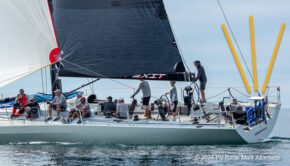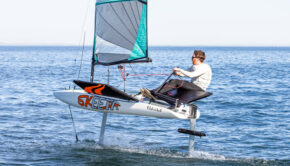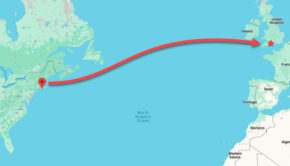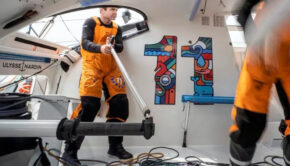Sliding down the slippery slope
Published on November 3rd, 2020
Roger McMillan, editor of the Australian website Mysailing.com.au, offers his opinion on the auto-pilot debate:
When the CYCA (Cruising Yacht Club of Australia) finally decided to enter the 21st century and allow double-handed entries in the 2020 Rolex Sydney Hobart, fans of short-handed sailing applauded.
However, that applause has turned to anger with the announcement that double-handers won’t be eligible to win the overall handicap trophy, the Tattersall Cup, owing to their use of auto-pilots.
Both the Rolex Middle Sea and Rolex Fastnet races include double-handers in the overall honours. In 2019, the JPK 10.30 Leon, sailed by designer Jean Pierre Kelbert and Alexis Loison, won the double-handed division and was sixth in IRC Overall.
Both races also allow auto-helms on all yachts now. The Royal Ocean Racing Club, which organizes the Fastnet Race, made that rule change this year, to bring it into line with the Middle Sea Race. Previously it had allowed auto-helms only on double-handed entries with no handicap penalties.
The argument appears to be that if the 100 footers can use canting keels and powered winches, then auto-helms should be considered just another “device”.
Hold on as we go sliding down the slippery slope. While the CYCA is attempting to close a door the sport had opened, the aggrieved double-handers are suggesting that CYCA resolve the conflict by allowing all boats to use the sophisticated auto-helms which are proving to steer better than humans.
A solution that adds cost to the sport? Seems about right. To read Roger’s complete editorial, click here.









 We’ll keep your information safe.
We’ll keep your information safe.